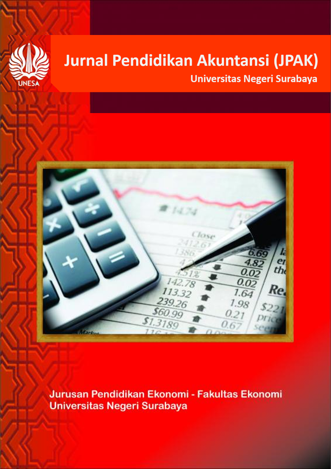Pengaruh Self-efficacy Terhadap Keterlibatan Siswa Melalui Motivasi Belajar
DOI:
https://doi.org/10.26740/jpak.v9n1.p140-148Keywords:
Learning motivation; self-efficacy; student engagementAbstract
The purpose of this research is to determine the role of learning motivation as a variabele that mediates effect of self-efficacy on student involvement in students Accounting and Financial Institution departement of SMK IPIEMS Surabaya. The population in this research amounted to 81 students Accounting and Financial Institution department of SMK IPIEMS Surabaya, whose entire population was used as the sample. Data obtained from a questionnaire as a measuring tool. Data analysis technique used is a data analysis technique SEM (Structural Equation Modeling) using WarpPLS software version 7.0, with two sub-models: outer model and inner model. Conclusion from the result of this study is that there is a significant direct positive influence between self-efficacy on student involvement, indicating that there is a significant positive direct effect between learning motivation on student involvement, and shows that there is a significant positive direct effect between self-efficacy on student learning motivation Department Accounting and Financial Institution of SMK IPIEMS Surabaya, and there is a significant positive indirect effect between self-efficacy on student engagement with learning motivation mediating variable in students Accounting and Financial Institution departement of SMK IPIEMS Surabaya.
Downloads
Downloads
Published
How to Cite
Issue
Section
License
Authors who publish with this journal agree to the following terms:
- Authors retain copyright and grant the journal right of first publication with the work simultaneously licensed under a Creative Commons Attribution License that allows others to share the work with an acknowledgement of the work's authorship and initial publication in this journal.
- Authors are able to enter into separate, additional contractual arrangements for the non-exclusive distribution of the journal's published version of the work (e.g., post it to an institutional repository or publish it in a book), with an acknowledgement of its initial publication in this journal.
- Authors are permitted and encouraged to post their work online (e.g., in institutional repositories or on their website) prior to and during the submission process, as it can lead to productive exchanges, as well as earlier and greater citation of published work (See The Effect of Open Access).

Jurnal Pendidikan Akuntansi (JPAK) is licensed under a Creative Commons Attribution-NonCommercial 4.0 International License.
 Abstract views: 3674
,
Abstract views: 3674
, PDF Downloads: 3754
PDF Downloads: 3754



